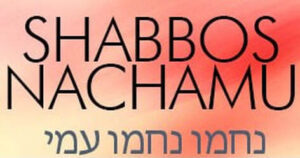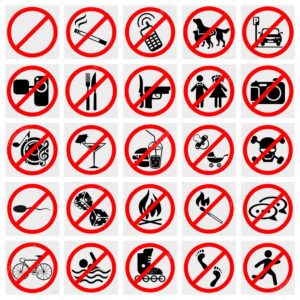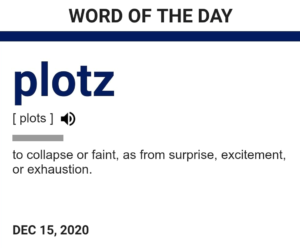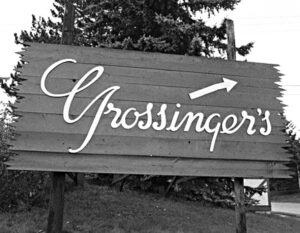Voeschanan 2022: Happy Days Are Here Again
by devadmin | August 11, 2022 9:23 pm
Raboyseyee and Ladies,
We begin with a big and special mazel tov shout out to Avigayil and Moshe Azman -the Ois’s niece and nephew- upon the bar mitzvah this coming Shabbis Nachamu- of their amazing son Rummi (Avrohom) Azman. Mazel tov Rummy; we’re all excited for you. A big mazel tov to Rummy’s grandparents, the Ois’s older sister Mina Bartfeld, and to Dr. Tommy and Ruthy Azman. Mazel tov wishes as well to siblings Reizi and Yakov, to all uncles, aunts, and cousins. The heylige Ois and eishes chayil will, of course, be in attendance; Baltimore, MD here we come.
Happy Days Are Here Again:
 It’s Shabbis Nachamu, Shabbis of consolation. Happy times are here again; are they? Givaldig! Warm memories abound of the quality times spent at the many kosher and not quite Glatt kosher hotels we either checked into, snuck into – sometimes in the trunk of a car- hung around in, and the myriad lobbies we worked until the wee hours of the morning. And work it taka was in those single days. And just as we are taught not to forget Thee O Jerusalem, avada, we should never forget the many hotels and motels that dotted Routes 42 & 52 from Ellenville to at least Liberty New York: May they all rest in peace. Them were the good old days when boys and girls met and spoke face to face without the intervention of a shadchan and before such meetings became verboten. Them were the days before myriad on-line dating sites. Shoin. The bottom line: as these great facilities closed, many of us were forced to do the unthinkable: we got married!
It’s Shabbis Nachamu, Shabbis of consolation. Happy times are here again; are they? Givaldig! Warm memories abound of the quality times spent at the many kosher and not quite Glatt kosher hotels we either checked into, snuck into – sometimes in the trunk of a car- hung around in, and the myriad lobbies we worked until the wee hours of the morning. And work it taka was in those single days. And just as we are taught not to forget Thee O Jerusalem, avada, we should never forget the many hotels and motels that dotted Routes 42 & 52 from Ellenville to at least Liberty New York: May they all rest in peace. Them were the good old days when boys and girls met and spoke face to face without the intervention of a shadchan and before such meetings became verboten. Them were the days before myriad on-line dating sites. Shoin. The bottom line: as these great facilities closed, many of us were forced to do the unthinkable: we got married!
Nu, the three weeks, the ten days, and even Tisha Be’ov are finally behind us and not a minute too soon. Ten days? Indeed, with Tishe Be’ov (9th day of Av) coinciding with the heylige shabbis this year, Tishe Be’ov observance was moved to the 10th of Av and just like that, a full ten days were marked before resuming full normal operations. And not a minute too soon I might add as the heylige Ois was mamish running out of clean gotchkis (underwear) to don. Did you even know that nine-day observance used to include a restriction on changing one’s underwear? In yeshiva we were taught to put on a bunch of pairs -one or more at a time- and then to quickly remove them. Once worn – even for a minute- they could be removed and put into the nine-day rotation. The bottom line: the underwear loophole was real! In very recent years, mistama because rabbis noticed that no one was following the archaic underwear custom, this custom and rule was updated. In one of the myriad handouts the Ois was zoiche to receive from multiple sources, the underwear section has been updated to read azoy: “Towels and linens are included in the prohibition of not doing or wearing newly laundered clothing. However undergarments that are worn against the body to absorb sweat may be changed to avoid discomfort, even if they were washed before the nine days. However, regarding actually washing them in the nine days, this should not be done. If you don’t have anything else to wear, it is permitted, but you cannot add other clothing to the wash.”
Can someone please explain how the fire in the Beis Hamikdash (Temple) on the 9th is at all related to clean underwear? Was another fire raging below? Why declare such restrictions if only a few -if any- will follow them? Do you know anyone -mamish anyone- who doesn’t change his/her underwear daily? Let’s get real: people shower with hot water and change their underwear during the nine-days and azoy iz (that’s just how it is), custom and even halocho notwithstanding.
We all know and it’s universally accepted that if one makes, or participates in a siyum, that one may enjoy the meat of his choice -within reason, if you chap- every day and night of the nine days. Therefore, it should also be understood that if one makes or participates in a siyum, one should zicher be able to change his/her underwear. And if one hears a siyum, can one also then go swimming, shower with hot water and change their underwear? And why not? The siyum, so they teach us- is a seudas mitzvah to which one is invited to attend and participate. Would you attend a party -especially a religious event- in dirty underwear? Shoin, I said it and I repeat: What good is having a rule on the books that kimat no one follows. That very pamphlet had this to say about bathing and showering; check it out.
Washing and bathing 1. Bathing is not allowed even with cold water 2. The hands, face and feet can be washed with cold water 3. One who’s used to bathing daily and therefore feels disgusting, can shower with cold water with just enough hot water mixed in so that it’s not uncomfortable. Soap can be used too 4. Regular showers can be taken for shabbos. However, cooler is better 5. Kids up until age 8 can be bathed regularly 6. The minhag is that children don’t go swimming 7. A kiddie pool or sprinkler is allowed up until age eight 8. Swimming for exercise is only allowed if it’s very necessary and there’s no alternative exercise
Says the Ois azoy: the Tishe Be’ov handbook requires updating based on the facts on the ground. While suggesting edits, let’s quickly recommend another rule change, one designed to bring us Yiddin into the 21st century. What’s with the rule extending Tishe Beov restrictions to the middle of the next day? Did you know that according to some (many, if not most), it’s still mamish osur (forbidden) to eat meat or do laundry, drink wine, listen to music, make and attend weddings, cut hair, shave and enjoy some intimacy with the eishes chayil until after chatzois the following day? And why is that? Because according to some, the fires continued to smolder until mid-day of the 10th. Oib azoy, if that’s the case, and so we were taught, why is that we were prohibited from eating meat and drinking wine this year when Tishe Be’ov was observed on the 10th? By the time the fast was over, it was nighttime and on our Jewish calendars, it was the evening of the 11th of Av. Weren’t the fires of the Beis Hamikdash extinguished by the afternoon of the 10th? What’s pshat here? Was the fast over or not? It was, but it appears that a few restrictions lingered. Why? Ver veyst?

As an aside, exactly how our sages knew that it all came to an end at approximately 12:30PM the next day, ver veyst; do you? Says the Ois azoy: if our sages could figure this out with such precision, why can’t they also figure out when Rosh Choidesh was and spare us a second day of Yom Tov? You hear this raboyseyee? Mamish another gevaldige kasha! Is there another fast day that’s over but not? When Yom Kippur is over, all goes back to normal -including sinning the next day- at the appropriate time. Do we extend the fast? We don’t!
Anyway, it’s Shabbis Nachamu and it’s time to be happy, but may we taka enjoy ourselves? Some are of the opinion that we may never be happy again because we are in Golus (Diaspora) and that happiness will only return when we lay the foundation for the third Bayis (third Temple). Is Moshiach on his way? If prerequisites include stamping out sinas-chinom (baseless hatred) and all loshoin horo, he’s not coming anytime soon and will only make an appearance when and if so directed by the RBSO. When is that? There are many with opinions on dates -a good number of them having passed- but the bottom line is azoy: ver veyst! Laying down other foundations, or things, if you chap, may provide some pleasure but won’t hasten his arrival.

Shoin, while it bothers the Ois greatly to put a damper on the upbeat mood of Shabbis Nachamu, so named because the haftora begins with the words ‘nachamu nachamu ami’ (be consoled be consoled My nation), let’s get real: our parsha of the week, Vo’eschanan, is quite depressing. It is? Let’s explore veyter.
Let’s look at the first few pisukim of the heylige parsha where Moishe, still orating, is telling the Yiddin how he begged and pleaded with the RBSO to rescind His decree and allow him entry into the promised land. Ober, the RBSO refused. Apparently, Moishe is on the ‘bad boy’ list, he’s been barred entry and the RBSO is not backing down. What’s happening here? Nu, if you remember a few weeks back, Moishe had some incident with a rock. Instructed to use his mouth, he instead employed his staff. Say it’s not so, but seemingly it was. Employing the staff when the mouth is called got Moishe into hot water; many have since found themselves in similar trouble, if you chap. Was Moishe’s harsh punishment meant to teach future generations about the severity of such abuse? Veyter.
Avada you can imagine how distraught Moishe was over this news and says the medrish on the very first posik in our parsha that Moishe begged the RBSO 515 times; still the RBSO would not forgive him. Interestingly enough, the gematria (numerical value) of the word Vo’eschanan is 515. How can we enjoy and be happy this shabbis when reading of Moishe’s fate? Was this his reward after serving the RBSO with distinction for the past forty years? Was Moishe asking too much? Did he request a new camel? A retirement watch? A new staff? Another wife? (Seemingly he divorced his first.) Was Moishe now in the market for a white woman? (Some say his wife was black, ver veyst.) Not! All he wanted was to step foot into the land; didn’t Moishe deserve entry? And we’re supposed to be consoled this shabbis as Moishe laments his fate? And to be happy? Oy vey. Not just did the RBSO say no, but listen to this: Said the RBSO: the answer is still no, and “stop asking Me.” Case closed! Moreover, says the heylige Toirah, that the RBSO teased Moishe and told him to climb the mountain and gaze his eyes in all four directions to see the land that he wasn’t going to see up close. Is that nice? Shreklich mamish! Raboyseyee, this entire exchange opens our parsha; but wait, it gets worse.
 As the end of Sefer Devorim (31:2), the heylige Toirah recounts that at the age of one hundred and twenty Moishe tells the Yiddin that he is no longer able/allowed to lead the people’s journey and will therefore not be carrying them on to cross the Jordan. In plain English: he’s tool old and tired; replacement needed. Moishe chaps that it’s time for change. Ober, check out what we find a bit later in Perek 34:7 where we read this: “Moishe was a hundred and twenty years old when he died; his eyes were undimmed and his freshness unabated.”
As the end of Sefer Devorim (31:2), the heylige Toirah recounts that at the age of one hundred and twenty Moishe tells the Yiddin that he is no longer able/allowed to lead the people’s journey and will therefore not be carrying them on to cross the Jordan. In plain English: he’s tool old and tired; replacement needed. Moishe chaps that it’s time for change. Ober, check out what we find a bit later in Perek 34:7 where we read this: “Moishe was a hundred and twenty years old when he died; his eyes were undimmed and his freshness unabated.”
דברים לד:ז וּמֹשֶׁה בֶּן מֵאָה וְעֶשְׂרִים שָׁנָה בְּמֹתוֹ לֹא כָהֲתָה עֵינוֹ וְלֹא נָס לֵחֹה.
His eyes undimmed and his freshness unabated? Does this sound like a man ready to die? Seemingly not: though Moishe did live to the old age of one hundred twenty years, a typological lifespan, many a medrish considered his death untimely, and thus tragic and sorrowful, because he did not manage to fulfil his life-mission of reaching the Promised Land. And it gets worse: Sefer Devorim does not use warm flowery language to express Moishe’s passing. What’s pshat? Let us contrast the words read above to those the heylige Toirah used to describe Avrohom’s passing. There (Bereishis 25:8) we read this: Hie died at a “ripe old age, elderly and full” (בְּשֵׂיבָה טוֹבָה זָקֵן וְשָׂבֵעַ). And when Yitzchok passed, we read this (Bereishis 35:29): “elderly and full of years” (זָקֵן וּשְׂבַע יָמִים). Over in the Novee (Shoiftim 8:32), we come across these words when Gidon dies: “ripe old age” (בְּשֵׂיבָה טוֹבָה). Ober, what do we read when Moishe died? Let’s go back to Devorim (34:7) where we learned that Moishe, at his death, was still vigorous, implying his ability to stay alive longer and to function a few more good years.
One medrish (Devorim Rabbah) further illuminates the opening words of the parsha and tells us azoy: Moishe begged the RBSO not only to enter into the land of Israel, but also to avoid death, to gain eternity. Moishe laid out several arguments and did not cease pleading. He argued for the merits of his endless devotion to the Yiddin; he made a claim for his uniqueness as the only person to come into such intimate contact with the RBSO and to receive the heylige Toirah. When the RBSO responded by noting the death of previous biblical good-guys – Avrohom, Yitzchok, Yaakov and others -our man Yoisef, Moishe pointed out his advantages over them. Moishe reminded the RBSO how he davened and saved the Yiddin from extinction several times and how the RBSO responded to his prayers. Disappointed however with the RBSO’s refusal to grant him eternity, Moishe then approached heaven and earth, the sun and the moon, the mountains, the hills and the oceans and asked them to pray for him! The bottom line: Moishe was doomed.
And with that background, many of you might be klering (thinking) azoy: OMG and what chances do any of us have? Why daven? Why do tshuva? Why fast? Why wear the same underwear for nine days? We haven’t got a shot! Zero, Nada! We’re done and kaput. Can we really believe that asking the RBSO for forgiveness on Yom Kippur, on that one day in shul -while we’re counting the hours before we can run home to eat- will bail us out? Will our halfhearted t’shuva be mechaper (wipe away) all our sins? Yikes! Moishe committed but one sin. And for those reasons alone, is it efsher more appropriate to be sad this shabbis as Moishe recounts his fate?
If the great manhig (leader) of the Yiddin, the man who assisted the RBSO in leading them out of Mitzrayim following 210 years of enslavement, the man who led with distinction for 40 years, all while having to endure protests and the many calamites the Yiddin brought upon themselves, got a big fat no, what about us? We’re talking about a man who metaphorically avada ‘talked the RBSO down’ following the eygel caper. A man who begged -successfully at times- the RBSO to forgive the Yiddin for other indiscretions, and now, he can’t get out of his own mess? All because he got physical with the rock? Because he improperly used his stick? How many times have you abused yours, if you chap and still travel to Israel regularly and whenever you so desire? Oy vey and woe is us!
Ober raboyseyee and ladies, there is good news; all is not lost. The Ois believes that even sinners like most of you are, still have a chance and here’s why? Davka because you’re not Moishe; it’s that simple. Seemingly the RBSO held Moishe to a higher standard davka (SPECIFICALLY) because he was Moishe, the near perfect person. And that’s what you get for being too good; thankfully, none of you need to be concerned. Thankfully the RBSO knows and chaps that we’re nothing but a bunch of sinners and therefore He expects little from us. Taka (in fact) we don’t disappoint, and therefore His standards are mamish lowered dramatically. You chap all this? In other words: the RBSO is marking us on a steep curve, the same one that allowed many of us to graduate. Afterall, He did design and program us.
And therefore Raboyseyee, for most of you and even the heylige Ois, one day of serious t’shuva on Yom Kippur may taka get the job done. Avada for some of you, maybe two days are in order and mistama some rabbi will come along and declare that one day of t’shuva isn’t enough and extend Yom Kippur to a second day. Why not? Isn’t that how the one day of Tishe Be’ov became the nine days and then morphed into the three weeks? That’s exactly how! Shoin, let’s not get all worked up again on the gantze (entire) two-day Yom Tov sugya (topic); that for another time. Veyter.
Irony of ironies, our parsha contains some of the most noteworthy pisukim in the gantze Toirah and in a moment, we’ll dig into them. If you make it to shul -and zicher you should even though you might be away this special shabbis- you’ll hear these two pisukim. As well, you’ll have the pleasure of hearing for a second time, the Aseres Hadibrois (The Ten Commandments). We can all use a reminder. As a bonus, you’ll also get to hear the first paragraph of the Shema and avada you’ll be pleased to learn -some of you for the first time- that the Shema actually appears in the heylige Toirah.

Let’s now read the two pisukim referenced above. Says the heylige Toirah (Devorim 4:1-2) azoy:
And now, O Israel, give heed to the laws and rules that I am instructing you to observe, so that you may live to enter and occupy the land…You shall not add anything to what I command you or take anything away from it, but keep the commandments of the Lord your G-d that I enjoin upon you.
Time for Rashi -who else- to illuminate these words: says he quoting the Sifrei, that these words simply mean what they say. One (you and our rabbis) literally should not add or subtract to words, commandments and other laws spoken by the RBSO. By way of example, the Toirah says that there are four species, the lulav (palm), esrog (citron), hadasim (myrtle), and aravos (willow) that the Yiddin are told to take on the Yom Tov of Sukis. Four means four and not five and one should literally not add a fifth species or take away one of the four. Easy enough to chap. The bottom line: do not add and do not subtract from the RBSO’s words. Another example cited is Tzitzis. We are commanded to have four, one should not add a fifth. In essence Rashi is explaining the issur (prohibition) as one against changing the identity of a mitzvah. The mitzvis listed here are characterized by their number; we cannot add on to a mitzvah that has a prescribed number associated with it which characterizes it.
 Nu, mistama you’re plotzing and ready to scream out loud: whatever happened to these holy words? Aren’t they part of the 613 mitzvis? Indeed, they are! But seemingly they’re extinct! Rashi’s explanations sound simple and logical but is this the velt (world) we live in? Isn’t it emes (truth) that many of the modern chumras (restrictions) are not at all based on the Toirah’s holy words? Does the heylige Toirah describe an eight-day Pesach or but seven? Answer: Seven! Ober, do we have an eighth day here? We do. Why? We celebrate an eighth day because our sages added an extra day. Are they getting a cut of the Matzo sales? The list of examples is endless. Ober raboyseyee, let’s not jump down the throats of our rabbis and avada we should never let any rebbe jump down yours and zicher not your kinderlach, if you chap. Efsher pshat is that it all comes down to interpretation and taka this would make some sense. Maybe the recipients of the heylige Toirah on Har Saini (according to the medrish, that includes us) heard all the same words but efsher, we understood them differently; could that be pshat? Ver veyst.
Nu, mistama you’re plotzing and ready to scream out loud: whatever happened to these holy words? Aren’t they part of the 613 mitzvis? Indeed, they are! But seemingly they’re extinct! Rashi’s explanations sound simple and logical but is this the velt (world) we live in? Isn’t it emes (truth) that many of the modern chumras (restrictions) are not at all based on the Toirah’s holy words? Does the heylige Toirah describe an eight-day Pesach or but seven? Answer: Seven! Ober, do we have an eighth day here? We do. Why? We celebrate an eighth day because our sages added an extra day. Are they getting a cut of the Matzo sales? The list of examples is endless. Ober raboyseyee, let’s not jump down the throats of our rabbis and avada we should never let any rebbe jump down yours and zicher not your kinderlach, if you chap. Efsher pshat is that it all comes down to interpretation and taka this would make some sense. Maybe the recipients of the heylige Toirah on Har Saini (according to the medrish, that includes us) heard all the same words but efsher, we understood them differently; could that be pshat? Ver veyst.
Vus iz de untersthe shira (what’s the bottom line)? Ver veyst! Why did our sages add restrictions and were they correct in so doing? Is it correct to restrict us from eating meat and drinking wine post Tishe Be’ov this year on the evening of the 11th? Ver veyst? Is this what the RBSO had in mind? Ver veyst? Is this what Moishe taught the Yiddin? Ver veyst? For these answers and many more, we read the words of this week’s haftorah which tells us that the RBSO has forgiven the Yiddin for their inequities and that Yirosholayim will be rebuilt. Some same so will Grossinger’s, the Pioneer, the Pine View, the Homowak, and others that we all long for. And for those reasons alone, happy times are indeed back.

A gitten Shabbis Nachamu wherever you find yourselves.
The Heylige Oisvorfer Ruv
Yitz Grossman
Source URL: https://oisvorfer.com/voeschanan-2022-happy-days-are-here-again/